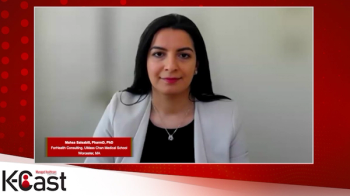
New Prescription App to Deliver Gut-Directed Hypnotherapy to Fight IBS Pain
The company says the therapeutic will fill an unmet need with a 12-week course of therapy for irritable bowel syndrome.
The more than 30 million Americans with irritable bowel syndrome (IBS) may soon have access to an established form of treatment in a brand-new mode of administration.
“IBS is a condition with significant unmet needs for both patients and providers, which insurers (payers) understand,” he said. “Additionally, current drug therapies to treat IBS have side effects that limit utilization and are expensive.”
MetaMe’s prescription therapeutic is called Regulora. It is the first digital treatment to receive FDA authorization for the abdominal pain associated with IBS. Patients who are prescribed the therapeutic are instructed to download an app and use it to self-administer gut-directed hypnotherapy, an established form of treatment that until now had been administered in-person by specialized therapists, the company said.
A
“Research shows that symptoms (of IBS) are mediated by a dysregulation of the sensory and motility signaling between the brain and the gut,” Rudolphi explained. “The bidirectional nervous system pathway between the brain and gut is a major contributor to IBS hypersensitivity and abdominal pain.”
Gut-directed hypnotherapy is designed to resolve the “miscommunication” between the brain and the gut, he said, resulting in reduced pain, normalized visceral sensation and decreased colonic contractions. It is also designed to quell negative thoughts related to IBS.
Rudolphi said the process of prescribing Regulora will look much like the process for any other prescription, except that the pharmacy will dispense an access code, rather than a bottle of pills.
“The physician writes the prescription and sends it off to the pharmacy,” he said. “The pharmacy will adjudicate with insurance, collect payment, and issue the access code. This code will unlock the app for the prescribed period of time,” he said.
In the case of Regulora, a standard course of treatment will be 12 weeks. The Regulora app is downloadable on the Android and Apple app stores, but he said patients will be unable to access it without a valid, nonexpired access code.
While the idea of smartphone-based therapy is convenient for patients, the novelty of the therapeutic class also creates hurdles, such as helping physicians understand the therapy and the technology behind it, and then convincing them to prescribe it.
MetaMe’s partnership with Indegene is designed to help clear those hurdles. Under the multiyear deal, Indegene will leverage its commercialization model toward physician- and patient-education efforts. Indegene also employs machine learning and artificial intelligence to help identify potential patients. In its press release announcing the partnership, MetaMe said the partnership will allow it to focus on developing therapies, while Indegene leads the way on commercialization.
Rudophi said he expects the product to launch later this year. When it does, he said it will likely be paid for with a one-time fee for the entire 12 weeks of therapy. He said he is optimistic payers will see the value of this new type of therapeutic option.
“Payers have been very receptive to this new treatment option in preliminary conversations,” he said.
Newsletter
Get the latest industry news, event updates, and more from Managed healthcare Executive.




















